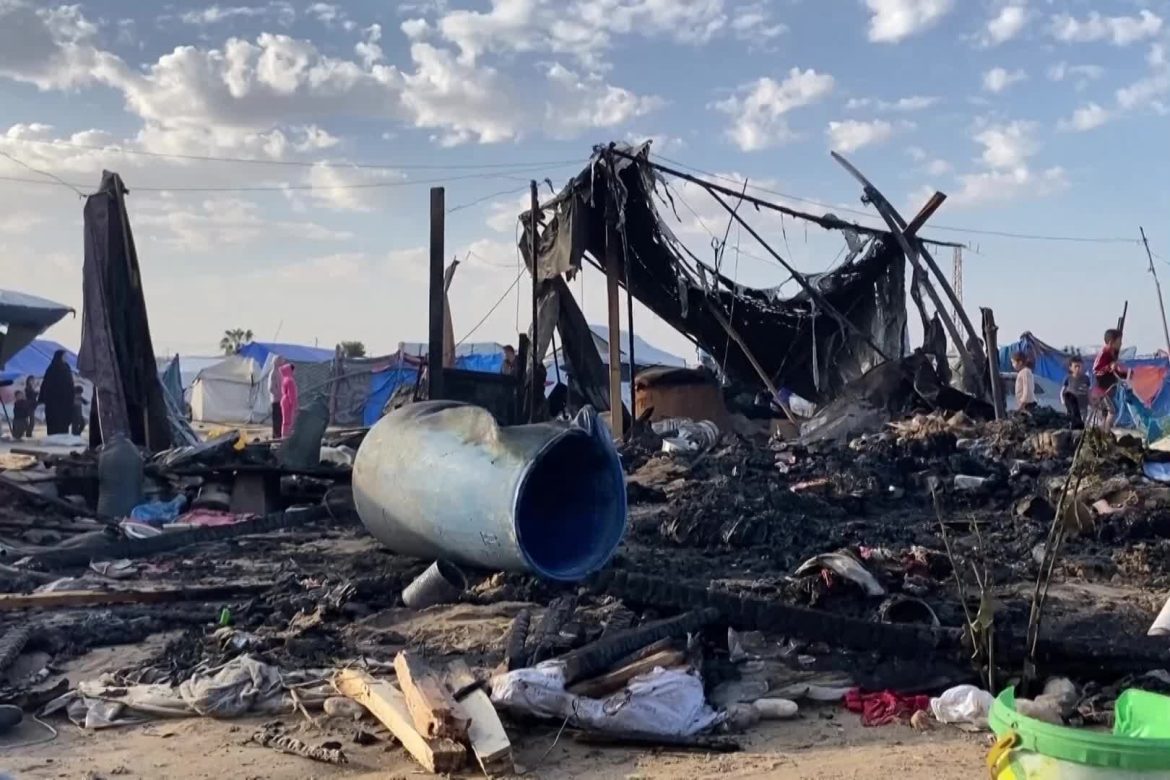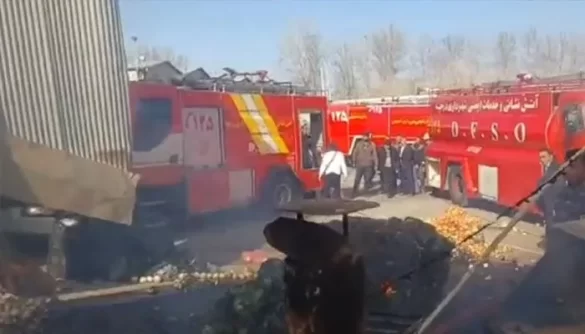Heavy Bombardment Across Gaza
The Israeli military has escalated its operations in northern Gaza, launching a series of strikes that killed more than 90 Palestinians on Wednesday, according to the Gaza Ministry of Health.
The attacks also targeted other parts of the territory, with residents reporting intense shelling and airstrikes overnight. Witnesses described entire residential blocks reduced to rubble, forcing survivors to search for loved ones amid debris. In a separate incident, five Al Jazeera journalists were killed in an Israeli strike near Gaza’s al-Shifa Hospital, underscoring the dangers faced by media workers covering the conflict.
Among those killed, at least 37 were people who had gathered to receive humanitarian aid, the ministry said. Local authorities allege that the victims were struck while queuing for food and other essentials in an already desperate situation.
Famine Deepens in the Blockaded Strip
Beyond the immediate toll from military action, Gaza is grappling with a worsening famine. The Health Ministry reported that eight more people died from hunger-related causes on the same day, bringing the total number of starvation deaths to 235 since the start of the crisis.
Humanitarian agencies warn that the situation could deteriorate further if aid delivery remains restricted. The United Nations has repeatedly stated that Gaza’s 2.3 million residents are facing “catastrophic levels of food insecurity,” with children at particular risk.
International relief groups have said that prolonged restrictions on the entry of food, medicine, and fuel have left hospitals struggling and families resorting to extreme coping measures, including foraging for animal feed or unripe crops.
Global Concern and Diplomatic Pressure
Several European governments expressed “deep concern” over the growing famine in Gaza. In coordinated statements, they urged Israel to ensure the safe and unimpeded delivery of humanitarian assistance. Diplomats emphasized that aid convoys must be protected from attack and allowed to reach the civilian population without delay.
New Zealand also issued a strongly worded statement, condemning both the obstruction of humanitarian aid and the forced displacement of Palestinians. Officials in Wellington called these actions “shameful” and urged all parties to comply with international humanitarian law.
Context: The Broader Conflict
The latest escalation comes amid months of ongoing conflict that began after Hamas launched attacks inside Israel in October 2023, killing more than 1,200 people, according to Israeli figures. Israel responded with a large-scale military campaign in Gaza, pledging to dismantle Hamas’s capabilities.
Palestinian health officials say tens of thousands of people have been killed in Gaza since the war began, most of them women and children. Entire neighbourhoods have been destroyed, and more than 80% of the population has been displaced, many multiple times.
The Israeli government maintains that its operations target militant infrastructure, accusing Hamas of operating from within civilian areas. However, international human rights groups argue that the scale of civilian casualties and destruction raises serious legal and moral concerns.
Humanitarian Access as a Central Demand
Ensuring humanitarian access has become a central demand in diplomatic discussions. The UN and aid agencies stress that without a sustained flow of food, clean water, and medical supplies, the death toll from starvation and disease will continue to climb.
Efforts to negotiate temporary ceasefires or “humanitarian pauses” have so far been limited in scope and duration. Aid workers say that even when limited access is granted, logistical challenges and security concerns often prevent aid from reaching those most in need.
Looking Ahead
As Israel continues its military operations and famine spreads, international calls for restraint and urgent humanitarian measures are growing louder. Yet with both sides entrenched in their positions, the prospects for a long-term ceasefire or political resolution remain uncertain.
For civilians trapped in Gaza, the debate over policy and diplomacy is overshadowed by a daily struggle for survival—whether from the bombs falling overhead or the slow, devastating impact of hunger.















